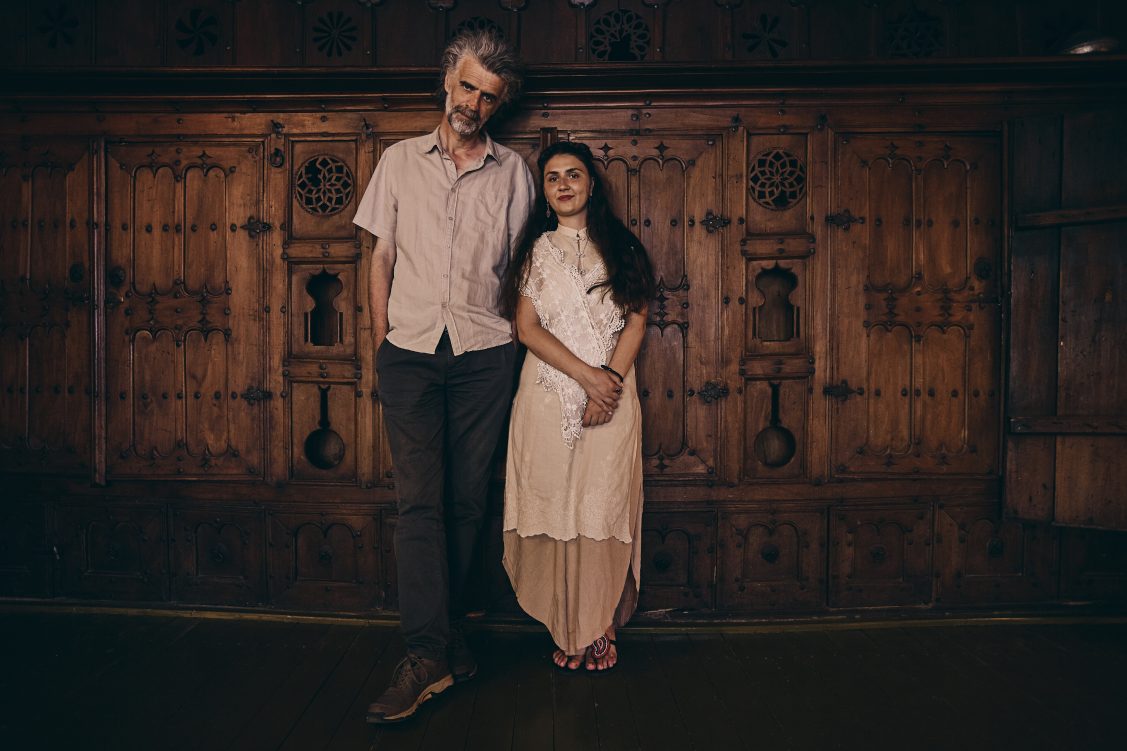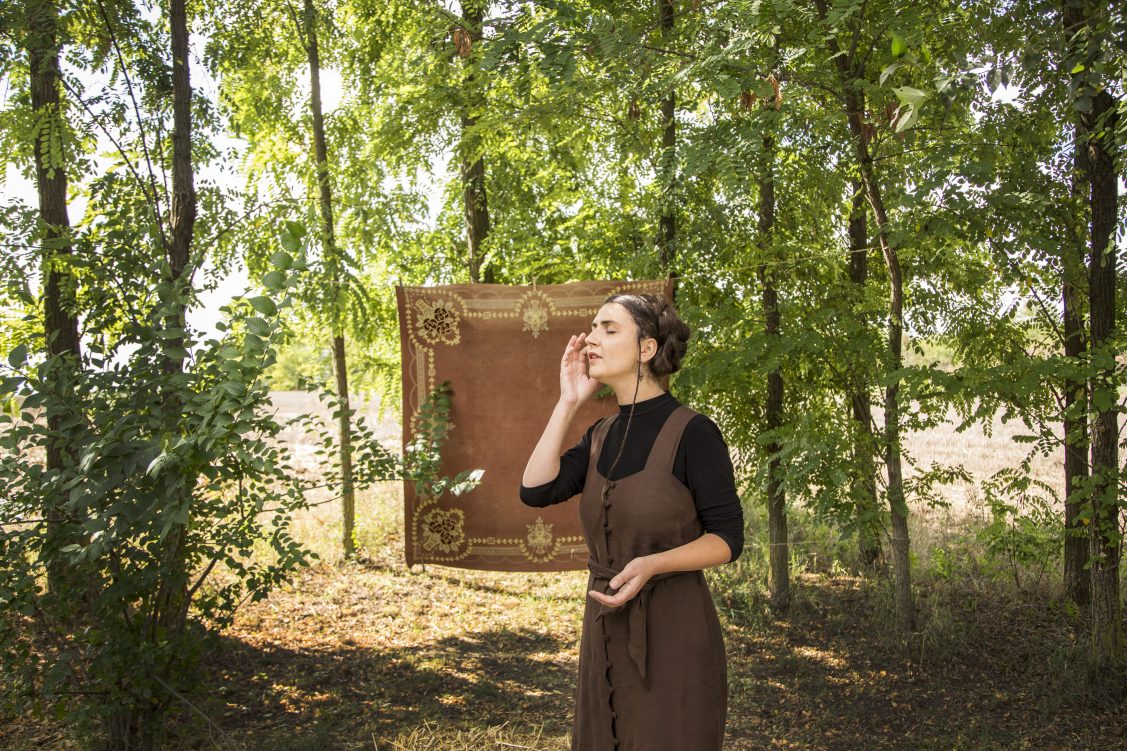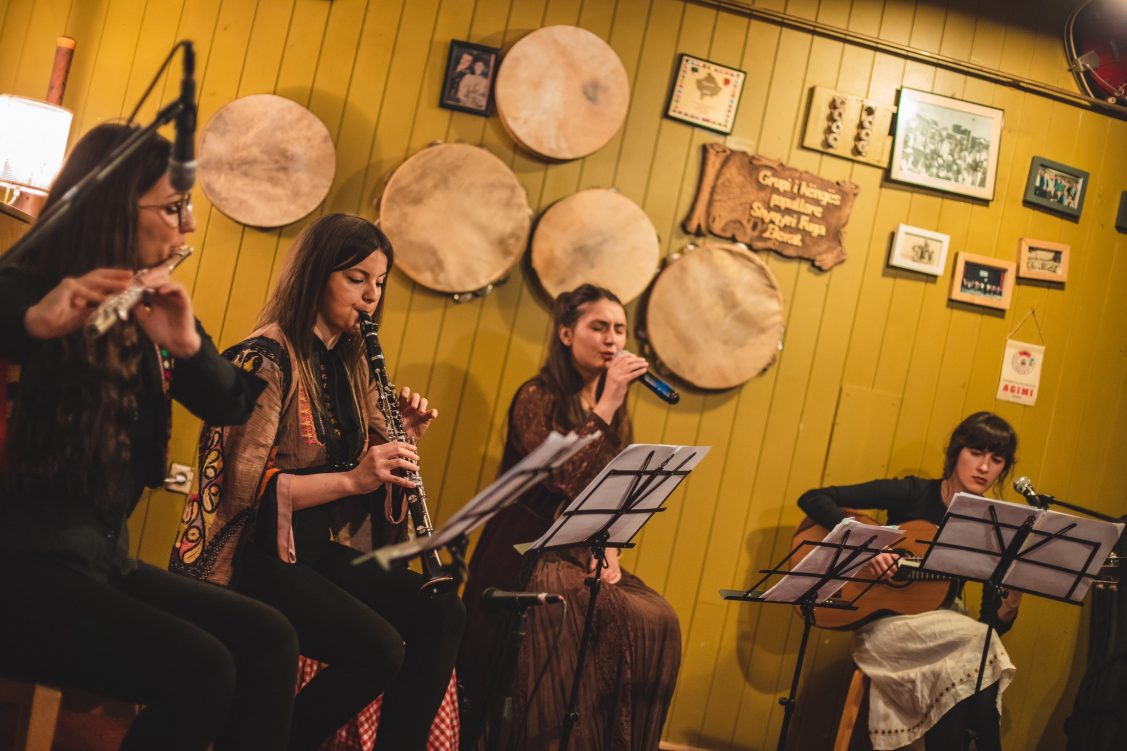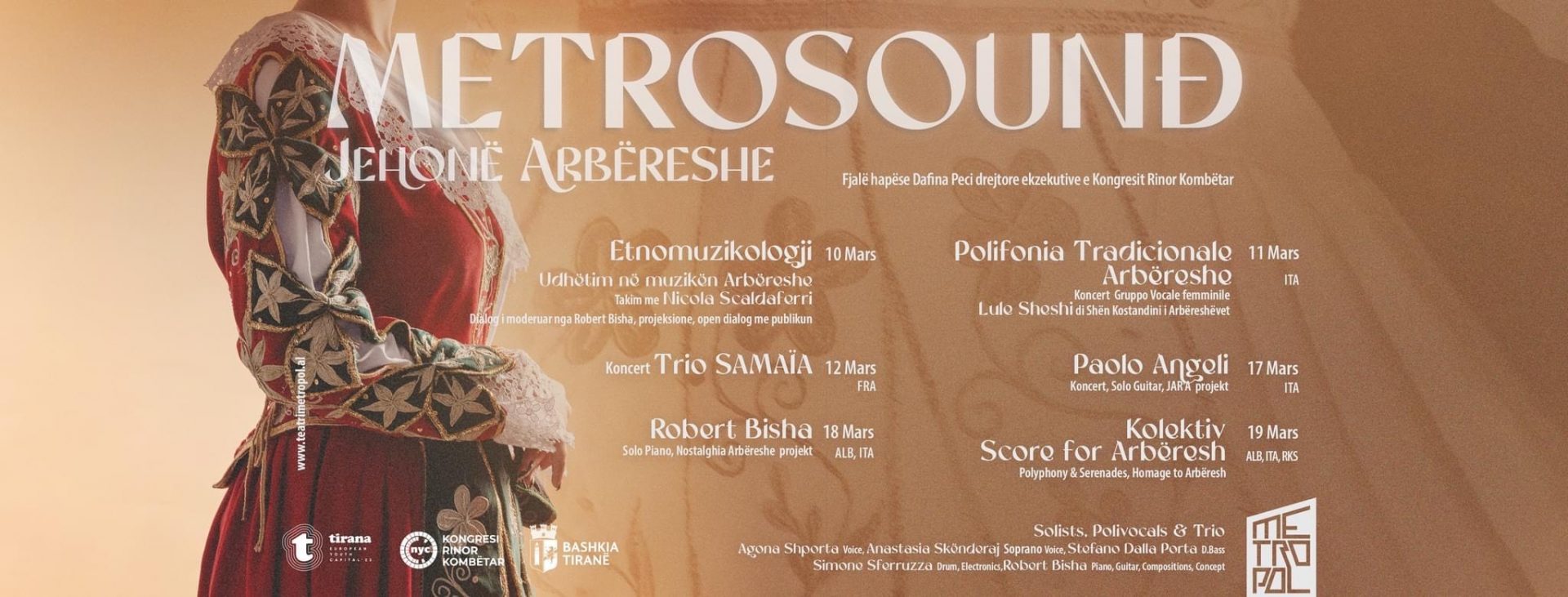February 27, 2022 | Sunday
Agona Shporta, a Global Music vocalist and musician from Prizren, performer in different music festivals with local and international artists, has recently been selected as one of the 12 winners of the MOST-Balkan Music Export Program, funded by the European Union through the Creative Europe Programme. To learn more about Agona’s music, her plans and the Programme, we have interviewed Agona.
EH: Who is Agona Shporta?
A.Sh.: Agona Shporta is a Global Music vocalist and performer that blends the different cultures she studies. Born in 1994 in Prizren, Agona studied piano at the “Lorenc Antoni” elementary music school. During high school in Pristina, she took her first steps in jazz, by studying with the pianist Ilir Bajri.

At the same time she studied vocal techniques under the mentoring of Besa Llugiqi and Elikona Hysaj. During the summer of 2011, Agona took a 5-week jazz course at the Berklee College of Music, Boston. During that time, she was active in performances and festivals in Kosovo, performing with various formations of the local scene, focusing on vocals, and sometimes on other instruments such as percussion, piano and trumpet.
EH: How was Agona’s artistic identity shaped when we know that the music you perform is characterized by a mixture of traditional Balkan music with sounds from South America, India and the Middle East?
A.Sh.: In the fall of 2012, I began my vocal studies at New York’s New School for Jazz, where I became familiar with musicians and different musical cultures that continue to shape my artistic identity. Some of the ensembles I attended during my studies were the “Brazilian Drum Ensemble”, “Cross-Cultural Improvisation”, “Indian Ensemble”, “Circle-Singing Ensemble”. In preparation for the graduation recital, I formed a musical group, with which we developed a repertoire of arrangements of songs from the Balkans, Brazil, India and the Middle East.
EH: What were Agona’s main artistic activities in recent years, and how much has the pandemic affected them?
A.Sh.: During my summer visits to Kosovo, through DokuFest, I collaborated with various international filmmakers and musicians. In August 2017, the French duo Vincent Moon and Priscilla Telmon, invited me to be part of their filming in Prizren, as well as to perform improvised music during the screening of their work, called “live cinema”, where the displayed visualizations are mixed live. Through their platform, “Petites Planetes”, they published a short film called “Kalimet: A musical portrait of Agona Shporta”.
Some other collaborations during DokuFest were the musical score for the film “D’Est” by director Chantal Akerman, with Lebanese musician Rabih Beaini, as well as appearing as a guest in the iso-polyphony group “River Voices” from Skrapar.
Undoubtedly, the pandemic has affected the activity of every artist. In February 2020, I was selected by the OneBeat Balkans music residence, which brings together musicians from the Balkans and the United States to create new musical works. As a result of the pandemic, the first part of the residence was organized online, while in September the opportunity was created for all of us to meet and continue working in person; which was very inspiring, as most of the participants had been stuck in our places of residence during the year and had not had the opportunity to work in large musical groups.

During the residency, the group was visited and collaborated with artists such as Rambo Amadeus, Marko Louis and Visar Kuçi.
Meanwhile, as part of Dam Fest 2020, I was part of the film “Afër” (Close) directed by Leart Rama, a film which documents my and Visar Kuçi’s performances in front of a listener. Also, in October 2021, I was a participant in the festival and residence “Xarkis” in Cyprus, where through the recordings of local musicians, I realized an audio-visual performance, which included songs, stories and images recorded during the residence.

Also, within the Lumbardhi Foundation, I have curated the ‘Variations on Listening’ public summer program (2020-2021).
In the recent months I have been preparing the production of a cultural event in the building of the Cultural-Artistic Society “Agimi”. Together with the musicians Malbora Krajku, Nita Krajku and Tringa Sadiku, on March 6, 2022, we realized a performance with the re-arranged folk songs of Kosovo and Albania. Also, in the repertoire we have included a song by George Gershwin, translated and adapted by Agron Shporta, entitled “Vakt i Verës.”

It was a very special experience and I hope such spaces are activated more often to unite musicians with music lovers and create new social collectives.
EH: You have recently been selected as one of the winners of the MOST-Balkan Music Export Program. Can you tell us more about the program and your expectations?
A.Sh.: Being one of the 12 artists selected as winners from more than 100 applicant super-artists from all over the Balkans, is definitely a special kind of pleasure. The MOST “Balkan Music Export” Program, supported by the Creative Europe program of the European Union, gives young artists the opportunity to get acquainted with the festival scene in the Balkans and Western European countries, and supports the construction of the portfolio of artists by producing new audio or videos. Another feature of the program that has attracted me is the fact that each musician will have their own mentors, with whom we will consult on the next steps of building our career. In April 2022, through the Songlines magazine will be launchedthe “Balkan Music Export vol.2” album, which includes songs by each selected musician/group. In my case, the song “Nata prapë agon” (Dawn always follows night) will be launched, which I composed with Tomor Kuçi during 2021, while the text is inspired and borrowed from a poem by my father.
What projects are you currently working on?
A.Sh.: In addition to participating in the “Balkan Music Export” program, another project that I would mention during March, is the collaboration with the pianist Robert Bisha at the Metrosound Festival in Tirana, where Arbëresh music and culture will be presented. In this festival I will perform in the final concert on March 19, as part of the ensemble “Kolektiv Score for Arbëresh”, which includes a poly-vocal duo between me and the soprano Anastasia Skënderaj, bassist Stefano Dalla Porta, drummer Simone Sferruza and pianist ensemble leader Robert Bisha.

In cooperation with Eroll Shporta, we have been selected in the open call of Heritage Space VI, of CHwB Kosova. Our project aims to gather the social and cultural memory of Prizren of the 80’s by focusing on the cafe-bar “Janis”, which was a meeting point of creators, artists and marginal characters of Prizren. The first phase of the project begins with a summary of interviews, archival materials such as photographs, postcards, cassettes and songs, and aims to combine oral history, music and visual art. The music that has been heard in Janis will be used as a research method, experimenting with the potential of the songs in reviving the memory of the individuals to be interviewed.